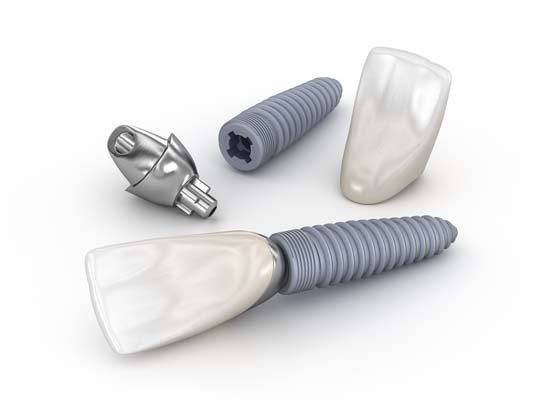3 Tips for Dental Crown Aftercare

Dental crowns are among the most common types of restorative treatments dentists provide. A crown has many uses and benefits. Not only can it restore the aesthetics of your smile, but it relieves pain, protects a damaged tooth, and prevents further problems from occurring to weak teeth. The process of getting a crown can require a few visits, but the results can last for years. There are some important steps you should follow to take care of it.
Reasons to get dental crowns
Crowns are not the right option in every situation, but this treatment makes sense for many conditions. The dentist might recommend a crown when a cavity is too large for a filling to support. Crowns usually cover a tooth after a root canal procedure as well. The dentist can place a crown over a broken, chipped, or cracked tooth. A crown also completes the process of getting dental implants.
Crowns are natural-looking in size, shape, and color. Usually, they are made of ceramic, porcelain, or composite resin. Crowns are durable and have a strong bite force. By having crowns, the patient should be able to chew effectively and have a full smile.
Be wary of certain types of food
People who have severely decayed or damaged teeth will have difficulty eating. Dental crowns restore this ability and let the person eat most foods. However, a person with a crown should cut down on some items. Hard foods such as some kinds of candy, popcorn kernels, ice, and bones can break a crown. Sticky foods such as taffy, caramel, and gum can pull a crown out. It is especially important to avoid these foods in the few days and weeks after getting a crown.
Do not forget about good oral hygiene
Having dental crowns does not preclude a person from having to brush and floss. It is still vital to keep up with these daily habits to maintain strong, effective crowns. Neglecting twice-a-day brushing and everyday flossing can lead to decay and gum disease around the crown, threatening the tooth underneath. This can also cause the crown itself to deteriorate or fall out.
Keep coming to the dentist’s office
Regular dental appointments should not stop or slow down after getting dental crowns. The dentist will want to follow up and see how well the crowns are performing. Checkups every six months allow the dentist to clean the crown and the teeth around it. If the patient detects that the crowns are coming loose or have any damage, a prompt visit is necessary. The patient should also call the dentist if they feel any pain while biting down or chewing.
Get the most out of your treatment
Having dental crowns can treat serious oral health conditions. Crowns also make a smile more attractive if you have damaged teeth. Your crowns can be more effective and last longer when you follow these guidelines and pay close attention to good maintenance. Your dentist can also give you some helpful tips to increase the longevity of your crowns.
Request an appointment here: https://www.northroadfamilydental.com or call North Road Family Dental at (770) 284-9171 for an appointment in our Snellville office.
Check out what others are saying about our dental services on Yelp: Dental Crowns and Dental Bridges in Snellville, GA.
Recent Posts
When there are issues with the teeth, a dentist performs a variety of procedures to treat them, and one is the placement of dental crowns. A crown is a cap that looks like a tooth, and it covers an existing tooth to restore function. A crown protects a tooth and prevents further issues from occurring. A…
There are many possible causes of a chipped tooth. Opening packages with your teeth, biting down on hard foods or objects and facial trauma can chip teeth. Whatever the cause, a chipped tooth can bring discomfort and make your teeth less appealing. Fixing a chipped tooth when you first notice it can prevent further problems.…
A chipped tooth may seem minor, but it can actually lead to serious complications if it goes untreated. One's oral health can be at risk, as a chip in a tooth can result in excess food getting stuck, causing bacterial buildup. Additionally, a chipped tooth may have sharp edges that can put the soft tissues…
A dental bridge is a method of replacing one or more lost teeth. People often use the word bridge to indicate a removable tooth replacement option, but dentists have a different opinion. Dental professionals consider bridges as a device that attaches to the teeth permanently and is not removable — at least not by patients.…


